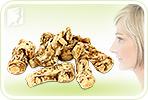What's the root of your menopause symptoms? Many women, facing unpleasant symptoms such as hot flashes and vaginal dryness, confront this question. The answer though is hormonal imbalance and the gradual decline of estrogen. This hormone, responsible for a variety of bodily activities, causes a medley of problems when it goes into decline.
Fortunately though the impact of menopause symptoms can be lessened by readdressing hormonal imbalance. While it might not be possible to eliminate menopause symptoms entirely, adopting a healthy combination of lifestyle changes and alternative remedies can go a long way towards alleviating the more severe effects.
Exercise
First and foremost on the list of effective menopause treatments is exercise. Getting your heart rate pumping for at least half an hour daily will have a bigger impact on your well-being than many other menopause treatment methods put together. Why? Because exercise alleviates the hormonal imbalance that's at root of your symptoms. Start slowly with a gentle jogging regimen. Run for five minutes, then walk for five minutes, gradually working your way into a more intense routine. Swimming and yoga are also great ways of getting the exercise you need.
Alternative Medicine
If exercise alone isn't enough to relieve your symptoms, alternative medicine can provide the boost you need. This form of treatment can be roughly divided into two categories: estrogenic and non-estrogenic. Estrogenic herbs contain plant compounds called phytoestrogens, which are thought to replace declining levels of estrogen in the body. These herbs include:
- Black cohosh
- Soy
- Don quai
- Red clover
- Ginseng
- Ginkgo biloba
Though they have been effective for many women, estrogenic herbs come with the risk of side effects. They can also hinder the body's ability to produce its own hormones naturally. For this reason, women should also consider non-estrogenic herbs. These come with no known side effects and work naturally to boost the body's own production of hormones.
Prescription Medications
Because of the side effects and risks involved, using prescription medications to treat the symptoms of menopause should only be considered as a last resort — when the benefits would outweigh the risks. Talk to a doctor if you think prescription medications would be right for you.
Click on the following link to learn more about the treatments for menopause.
Sources
- BMJ Group. "Menopause: What is it?" Patient Leaflet. 2007.
- Hopkins, Virginia. Lee, John R. M.D. What Your Doctor May Not Tell You About Menopause. New York: Warner Books Inc., 1996.
- Love, Susan M.D. Menopause and Hormone Book. New York: Three Rivers Press, 2003.
- Martin, Raquel. The Estrogen Alternative. Rochester, VT: Healing Arts Press, 2000.




